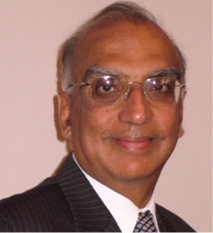The regulations that guide businesses are stringent, numerous and complex. Many companies have seen their reputations wane when regulatory authorities impose fines on them. In some cases executives have been sent to prison. Multiple regulatory authorities in various countries share information with each other more frequently than ever before. This is true in both developed countries and developing and emerging markets, as global money laundering norms become more stringent.
Companies encounter corruption in every sector of the Indian economy and their experience and perception differs depending on where they operate. India’s decentralized federal government system results in the regulation of corruption varying widely from area to area.

Partner
Mulla & Mulla & Craigie Blunt & Caroe
Faith in the system
One of the keys to success in dealing with issues of fraud, bribery and corruption is the quality of the system a company uses for reporting and investigating allegations of misconduct. If stakeholders view the investigation as biased or not competently managed, it will bring little good. Trust in senior management to do the right thing will be eroded and disillusioned employees will think twice about future cooperation.
You must be a
subscribersubscribersubscribersubscriber
to read this content, please
subscribesubscribesubscribesubscribe
today.
For group subscribers, please click here to access.
Interested in group subscription? Please contact us.
你需要登录去解锁本文内容。欢迎注册账号。如果想阅读月刊所有文章,欢迎成为我们的订阅会员成为我们的订阅会员。
Shardul Thacker is a partner at Mulla & Mulla & Craigie Blunt & Caroe in Mumbai.
Mulla House
51, Mahatma Gandhi Road, Flora Fountain
Mumbai 400 001, INDIA
Tel: +91 22 2262 3191 / +91 22 6634 5496
Fax: +91 22 6634 5497
Email: shardul.thacker@mullaandmulla.com






















